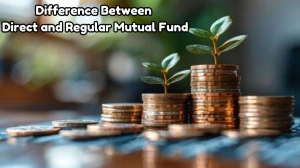
How to Pay Off Debt Faster? How Do I Pay Off Debt When Living Paycheck to Paycheck?
To pay off debt faster, assess your finances, cut unnecessary expenses, stop using credit cards, increase your income, choose a suitable repayment strategy, consider debt consolidation, and seek professional help if needed.
by Kowsalya
Published Jul 21, 2023 | Updated Nov 27, 2023 | 📖 5 min read
How to Pay Off Debt Faster?
Discover actionable tips to accelerate your journey to financial freedom with our guide on 'How to Pay Off Debt Faster.' Here are seven essential strategies to accelerate your journey to paying off debt faster, each presented under clear subheadings for easy reference and implementation.
Figure out your budget
- Understand your income and expenses to identify extra money for debt repayment.
- Paying more than the minimum each month can expedite the payoff timeline.
- Simultaneously, work on building an emergency fund to prevent further debt in case of unexpected expenses.
Reduce your spending
- Cut down on non-essential expenses such as streaming services, dining out, or costly phone plans.
- Every saved dollar contributes to faster debt reduction.
Stop using your credit cards
- Cease credit card usage to prevent the debt from growing.
- This can also improve your credit score by reducing credit utilization.
Look for extra income and cash
- Explore side hustles or part-time jobs for additional income.
- Consider using windfalls like tax refunds or work bonuses to make lump-sum debt payments.
Find a payoff method you'll stick with
- Choose a debt payoff strategy that aligns with your preferences and motivations.
- Options include the debt snowball method (paying off the smallest debt first) or the debt avalanche method (focusing on the highest-interest debt first).
Look into debt consolidation
- Consolidate multiple debts into one payment, preferably with a lower interest rate.
- Options include 0% interest balance transfer credit cards or debt consolidation loans, though a good credit score is often required.
Know when to call it quits
- If debt becomes overwhelming, consider debt relief options such as debt management plans or bankruptcy.
- If debt payments exceed 50% of gross annual income, seeking professional help may be necessary.
More On >> How to Get Out of Credit Card Debt?
How Do I Pay Off Debt When Living Paycheck to Paycheck?
Living paycheck to paycheck while burdened with debt may seem like an insurmountable challenge, but practical solutions can pave the way to financial freedom. In this guide, written by Meghan Alard, a Financial Literacy Specialist, two key strategies are presented for individuals in this situation.
Debt Consolidation Loan
- Ideal for those with good credit and debts below $25,000.
- Involves taking out a loan to pay off all existing accounts, consolidating payments into a single, often lower-interest loan.
- Extending the loan term can reduce monthly payments, providing relief to tight budgets.
- The potential downside includes the need for disciplined budget management to prevent further debt accumulation.
Debt Management Program (DMP)
- Suited for those seeking professional assistance in debt repayment.
- Involves working with a certified credit counselor to create a repayment plan, and negotiating lower interest rates with creditors.
- Not a loan; functions as a professionally assisted repayment plan.
- While more expensive and time-consuming than debt settlement, a DMP is often better for credit and offers lower monthly payments.
What Are the Benefits of Paying Off Debt Fast?
Paying off debt swiftly offers a range of advantages that extend beyond just financial relief. Understanding these benefits can serve as motivation and reinforce the commitment to a faster debt payoff. Here are the key advantages:
Reduced Interest Payments
One of the primary benefits of paying off debt swiftly is the significant reduction in interest payments. By adopting an accelerated repayment approach, a substantial portion of each payment goes toward the principal balance.
This strategic allocation minimizes the overall interest accrued. For instance, tackling a high-interest credit card balance aggressively can result in substantial savings, allowing individuals to retain more of their hard-earned money.
Improved Credit History
Swift debt repayment not only ensures timely payments but also positively impacts credit history. Lenders value a borrower's ability to manage credit responsibly, and a rapid reduction in debt showcases financial responsibility beyond meeting payment deadlines. This favorable credit history can lead to improved creditworthiness, potentially opening doors to better interest rates and more favorable credit opportunities.
Enhanced Debt-to-Income Ratio
A key advantage of expeditious debt payoff is the improvement of the debt-to-income ratio. By reducing outstanding debts quickly, individuals create a healthier financial profile. This improved ratio enhances creditworthiness, increasing the likelihood of qualifying for better interest rates and broader credit opportunities. Whether seeking a mortgage or an auto loan, a favorable debt-to-income ratio is a crucial factor in securing favorable terms.
Embark on a journey through the expansive universe of Finance by delving into the diverse and informative content offered at MarketsHost.
What Are the Tips for Paying Off Debt Faster?
Navigating the path to financial freedom requires strategic planning and discipline; discover effective tips for accelerating your debt payoff journey and achieving lasting debt relief.
Avoid New Debts
Commit to a debt-free journey by refraining from taking on new debts. Every additional borrowing not only prolongs the time required to achieve financial freedom but also contributes to increased overall costs. Embrace a disciplined approach, reserving borrowing exceptions for necessary instances such as debt consolidation, a strategic move to expedite debt repayment.
Consider Debt Relief Services
Explore the option of collaborating with a reputable debt relief company to accelerate your debt payoff. Debt relief encompasses various strategies, including debt consolidation, interest rate reduction, principal reduction negotiations, and adjustments to loan terms. Professionals in debt relief can assist in creating a customized debt management plan aligned with your current budget, potentially securing more favorable terms with creditors.
Build an Emergency Fund
Protect your debt payoff progress by establishing an emergency fund. Even the most meticulous debt repayment plans can face challenges when unexpected expenses arise. An emergency fund, ideally covering three to six months of living expenses, serves as a financial safety net. Whether it's a significant car repair or a sudden dental expense, having a reserve of $500 to $1,000 can prevent the need to accumulate additional debt and safeguard your debt reduction efforts.
How to Pay Off Debt Faster - FAQs
1. How can creating a budget help in paying off debt faster?
Creating a budget allows you to assess your income and expenses, identify areas to cut unnecessary spending, and allocate extra funds towards debt repayment, accelerating the payoff process.
2. Why is it essential to avoid new debts when aiming to pay off existing ones?
Taking on new debts prolongs the debt repayment timeline and increases overall costs. Avoiding new debts is crucial for a disciplined approach to expedite the journey to financial freedom.
3. What role does a debt consolidation loan play in paying off debt faster?
A debt consolidation loan combines multiple debts into a single, often lower-interest loan.
4. How does swift debt repayment positively impact credit history?
Swift debt repayment demonstrates financial responsibility beyond timely payments, positively influencing credit history.
5. Why is building an emergency fund recommended for those paying off debt?
An emergency fund serves as a financial safety net, preventing unexpected expenses from derailing debt repayment plans.




